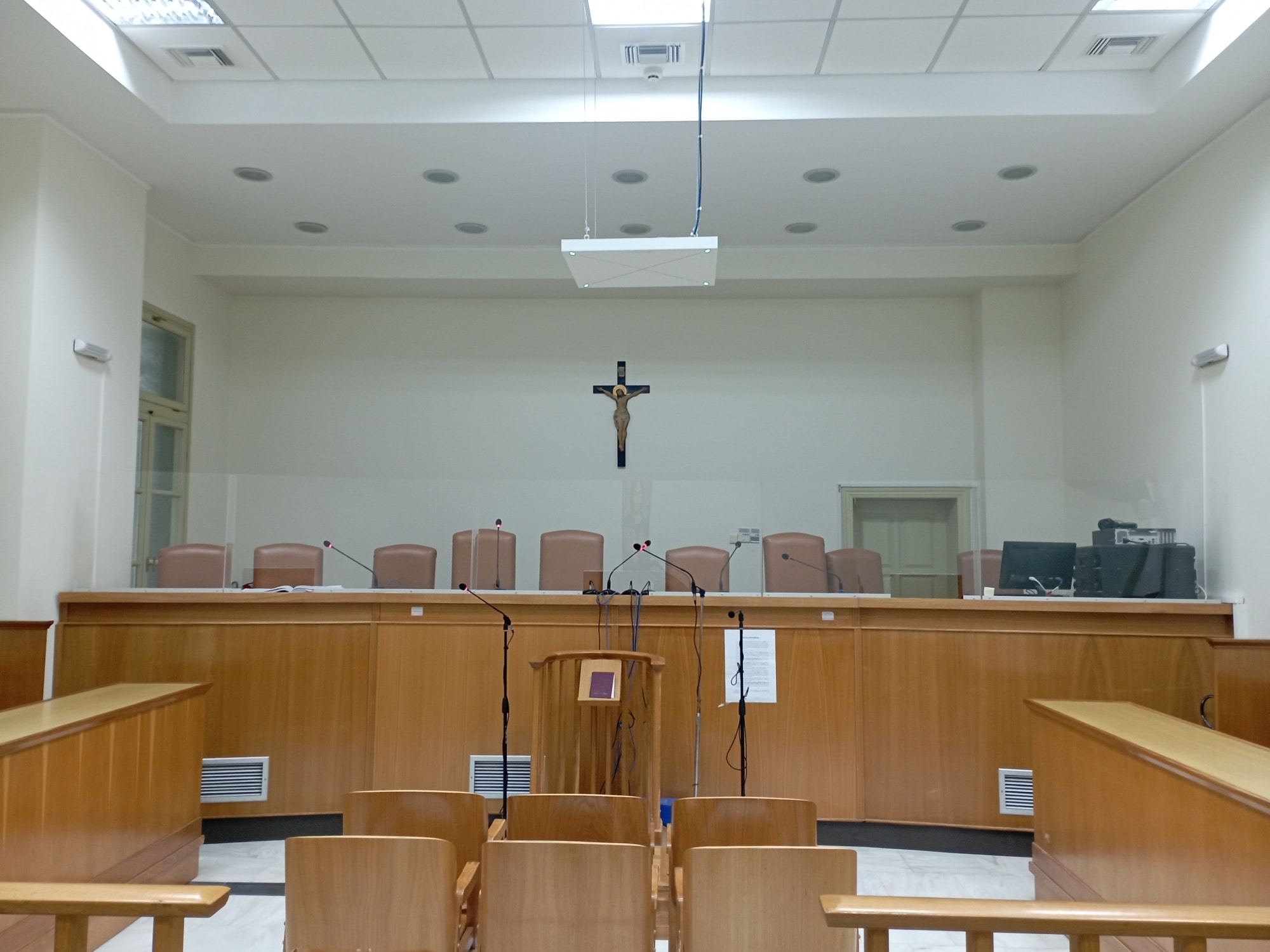In Greek legislation, “smuggling” can take different forms and appear under various legal articles. The main charges people on the move face are: “illegal transportation from abroad into Greece of third-country nationals who do not have the right to enter Greek territory” and “facilitation of illegal entry”. These charges are often aggravated by claims that the accused acted for profit or as part of habitual or joint activity.
Greek authorities have increasingly tightened these laws to deter crossings from Turkey to the Greek islands, and lately for people crossing from Libya to the coasts of Crete island. Since early 2019, the Coast Guard has reportedly been instructed to identify one person per intercepted boat and charge them as its “driver”. The law does not distinguish between actual smugglers and those who were coerced into steering the vessel, or just happened to do so. As a result, hundreds of individuals – many of whom were not even steering – find themselves in pre-trial detention, awaiting judgment in Greek courtrooms months later.
Some racially driven stereotypes can be also recognised. The majority of the people accused are male, 20 to 30 years old. If a Turkish national can be found among the passengers of the boat, that person will be identified as the “smuggler”.
The sentences are severe: a minimum of 10 years for each passenger in cases of “simple transportation”, increasing to 20 years if profit is involved or passengers were endangered, and life imprisonment if a shipwreck results in fatalities. Additionally, those convicted face exorbitant fines of €10,000 to €200,000 per passenger. These combined penalties lead to decades-long prison sentences and hundreds of thousands of euros in fines. The inability to pay these fines after release can lead to further charges and imprisonment, a “revolving door” in a carceral system which was never intended to provide for justice and healing for the victims, nor an opportunity for transformation and rehabilitation for the “perpetrators”, but rather criminalises poverty and migration.
We have witnessed, time and again, young people – fleeing war, poverty, and exploitation – sit handcuffed in courtrooms during some of the most consequential moments of their lives, unable to understand the proceedings due to poor translation and inadequate legal representation. Most are assigned court-appointed lawyers on the day of the trial, with only 30 to 60 minutes of preparation. The outcomes of these trials are almost always predetermined. Today, smuggling-related convictions represent the second-largest crime category among inmates in Greek prisons, with more than 2000 people imprisoned.
On June 11, we witnessed something that could prove historic. Under our monitoring, the prosecutor and judge of the Single-Member Appeals Court in Samos accepted a defence argument: that international treaties and Greek migration law contain provisions protecting asylum seekers from prosecution under smuggling laws. It took courage and judicial independence to challenge the dominant political narrative that seeks to criminalize migration. Eleven young men, from Palestine, Sudan, and Syria, were acquitted. For the first time since arriving in Europe, they were released from prison, allowed to file asylum claims, and given a chance at a better future.
This outcome would not have been possible without the tireless efforts of the two lawyers who represented them and their team’s support. Their careful preparation compelled the court to accept the legal argument, setting an important precedent for future cases. This win means much more than freedom for eleven men; it opens the door to future acquittals in a system that too often traps the innocent.
The courtroom erupted with smiles, tears, and embraces, both from the acquitted men and from us, who had sat beside them, hearts pounding. Still, even in this moment of joy, we felt the weight of injustice for the many others whose convictions we had recorded that same day, who will add to the vast number of migrants filling the Greek prison system.
It was, however, a strong reminder of the importance of human rights work in a world of evolving injustices, war, and discrimination. Our commitment to solidarity, equity, and justice may not always change individual outcomes, but it shapes the kind of communities we live in and fight for.




